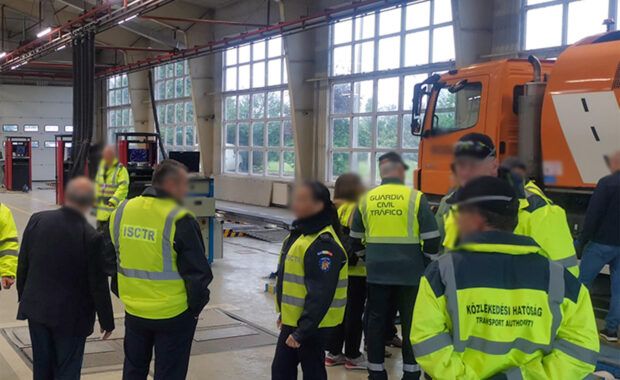Moving abroad is an important life change that is both exciting and challenging. The list of things to take care of before you can feel settled in the new country is seemingly endless, and even the most meticulous planners will find themselves stressed at some point. One way to minimise the hassle associated with moving […]
Read MoreGaps on the European labour market 2024 continue to increase
The EURES report on European labour 2024 shows that persistent labour shortages, as well as surplus occupations in in European key sectors continue to rise. The seventh edition of this report, which gathers data from across 31 EURES countries, provides crucial insights into the nature of employment trends and needs to tackle shortages and surpluses. All 31 EURES countries […]
Read MoreMore Than 770 Violations Detected in Cross-Border Road Transport Inspections
The European Labour Authority coordinated a week of joint inspections held in Austria, Belgium, Cyprus, Greece, Hungary, Lithuania, Latvia, the Netherlands, Romania, Slovakia and Spain. A total of 564 freight and passenger vehicles were checked, resulting in the detection of 774 infringements. About one third of the vehicles and drivers ended up with a “clean” check, i.e. no infringement identified. […]
Read MoreNew agreement to improve consultation of workers in international affairs.
Parliament and Council negotiators have reached a provisional agreement to improve the functioning of European Works Councils and strengthen their role. European Works Councils (EWCs) represent EU workers in large multinational companies that operate in at least two EU or European Economic Area countries. They are designed to ensure that workers receive proper information and […]
Read MoreMore than 6.1 million workers trained under the Pact for Skills
More than 6.1 million people have received training under the Pact for Skills since its launch in 2020, according to the results of the 2024 Pact’s annual survey. Over 3,200 organisations that invest in skills development have now joined the Pact, including industry, social partners, education and training providers, local authorities and employment services. The Pact for Skills is central to […]
Read MoreThe ELA’s fight against wage fraud
The European Labour Authority (ELA) supported a number of cross-border inspections in March 2025, of 107 companies across key sectors including construction, manufacturing, and the hotel, restaurant and catering (HORECA) industries. Particular focus was on ensuring compliance with EU and national rules on remuneration. More than 700 workers were interviewed during the inspections. […]
Read MoreLabour migration: an EU Talent Pool to facilitate international recruitment
The EU Talent Pool should be open to workers of all qualification levels and ensure fair treatments of jobseekers, the Civil Liberties Committee agreed on Wednesday. On March 19th, MEPs in the Civil Liberties Committee backed the creation of an EU Talent Pool, designed to make it easier to recruit non-EU nationals to jobs in […]
Read MoreCamino Europa 2024, Spanish winner of the Charlemagne Youth Prize 2025
Students from the Andrés de Vandelvira Secondary School in Albacete walked the Camino de Santiago alongside students from Germany, Bulgaria, Romania, and Portugal to promote the European elections. The Camino Europa 2024 project, promoted by the Andrés de Vandelvira Secondary School in Albacete, is the winner of the 2025 Charlemagne Youth Prize in Spain. The objective of this initiative was to […]
Read MoreIs hyperconnectivity hurting our health?
Switching off from work is becoming more and more difficult in today’s digital workplace. Does your normal workday feel endless? Do emails and texts from clients or colleagues make you anxious long after the day has ended? There’s added pressure to work even during off hours. The borders between work and home are blurring, especially […]
Read More








